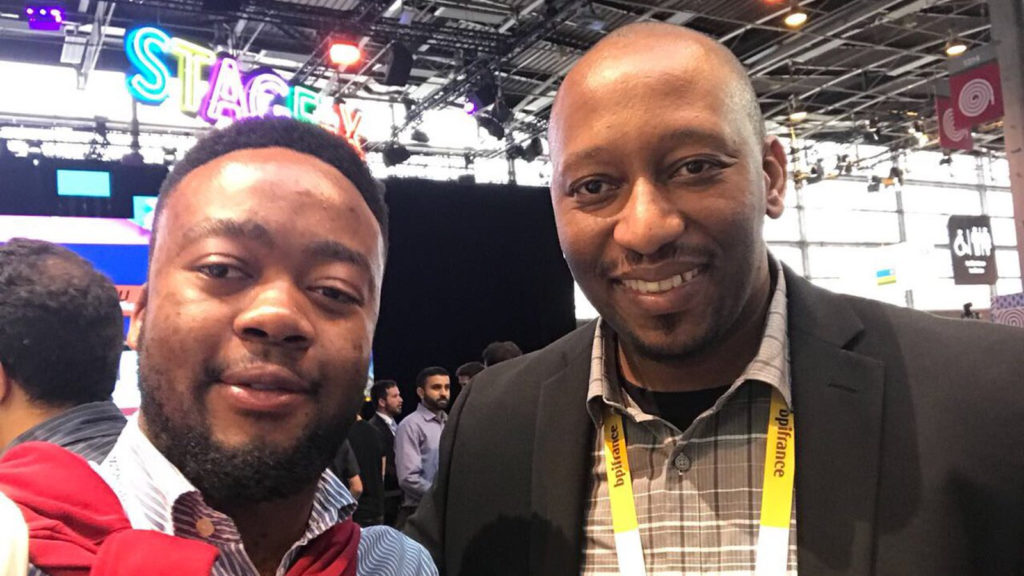Artificial Intelligence (AI) is no longer just a buzzword. It is embedded in everyday work, from drafting emails to automating entire workflows. For Memeburn’s…
African universities not connected to ecosystem as they should be [Q&A]

Earlier this month 90 innovation hubs from across the continent endorsed the African Innovation Policy Manifesto in Kigali, Rwanda. The declaration covered seven key areas including education.
The manifesto called on African governments to recognise that education is “the most critical factor to accelerating innovation, digital and socio-economic transformation”.
The document further recommends that governments, as part of a three-pronged approach to stimulating research and development R&D and innovation across the continent, invest in R&D, and redesigning curriculum.
Read more: 90 innovation hubs endorse the African Innovation Policy Manifesto
But, what role should academic institutions play in Africa’s digital innovation revolution?
The following Q&A is part of a series Ventureburn will conduct with leading academics working on the continent, or overseas in facilitating innovation in Africa.
Ali Diallo (pictured above right), global programmes manager at the MIT’s Legatum Centre for Development and Entrepreneurship believes African universities are not as connected to their relative startup ecosystems as they should be. Here’s what he had to say on what academic institutions should be doing.
Ventureburn: What role should academic institutions be playing with regards to Africa’s tech ecosystem?
Ali Diallo: Academic institutions are critical to the tech ecosystem because they represent unique platforms for researching and testing out new innovations, business models and inventions.
They also play a unifying role in the ecosystem as they act as a hub for all the other key stakeholders such as thought leaders, entrepreneurs, investors, regulators and corporate institutions.
They should leverage this holistic role to positively influence the stakeholders and gather them around initiatives that foster the local ecosystem.
VB: Which countries serve as an example of how important academia is to tech startup ecosystems?
AD: France, the UK and the US are three countries that come to mind. France is emerging as a research hub for next-generation tech initiatives such as artificial intelligence (AI) and machine learning.
The UK has been experimenting with innovative models such as crowdfunding and university venture funds, such as the Oxford Sciences Innovation, to support startups and tech ecosystems.
In the US, universities play a central role in powering tech ecosystems through academia. For instance, MIT with the Boston ecosystem and Stanford University with Silicon Valley.
In Africa, many African countries are actively working on supporting tech ecosystems despite many challenges such as limited funding and low attendance rates (Ghana, Senegal, Morocco, Cote d’Ivoire, South Africa, Nigeria, and Kenya are just a few examples).
Many universities from these countries are building up tech-specific initiatives such as incubators and accelerators.
VB: How should academic institutions be supporting innovators and startups?
AD: There is a framework called NICE that I use to map out the needs of innovators and startups in frontier markets. According to this model, startups need four types of capital to succeed: relational, technological, financial, and experiential.
Academic institutions should help nurture these four types of capital and make them available to entrepreneurs.
Relational capital is about enabling a network of human resources that can assist entrepreneurs, educators, mentors investors, regulators, and so on.
Technological capital refers to intellectual property, innovation and the creation of breakthrough technologies.
Financial capital points to investment and funding from debt and equity, venture capital, loans, investors’ networks, and so on.
Experiential capital focuses on knowledge, know-how and expertise that stem from strong “field” experience, startup leadership, mentoring and executive management.
VB: How involved are African academic institutions in the African tech ecosystem? What challenges are they facing?
AD: Academic institutions are increasingly more involved. The MIT Legatum Center collaborates with many universities and schools such as Strathmore University in Kenya, the University of Cape Town (UCT) in South Africa and Estel School of Management in Senegal, to host a series of meetups and events.
However, at the broader Pan-African level, academic institutions suffer from an isolation syndrome as they are still not as connected to the ecosystem as they could be.
If one takes a look at the hubs, platforms and regional tech ecosystems that span Africa, one may not find many universities that are listed as partners of these hubs or as active members of the ecosystem.
Lack of funding and inadequate staffing issues are two of the main causes of this ecosystem isolation. Also, the African educational programming should be updated to reflect a more adequate entrepreneurial focus.
One way for universities to overcome these challenges is by strengthening their relationships with the hubs to build up their access to the entrepreneurship network and by working on fundraising efforts that support entrepreneurship and innovation.
VB: How do academic institutions benefit from working with and helping out the tech ecosystems around them?
AD: There is a saying in Silicon Valley called “Pay it forward”, which is essentially a way of saying “help others to help yourself”. This expression partially summarises how academic institutions benefit from supporting the tech ecosystems.
As they equip more students with the knowledge and skills that they need to succeed in today’s world, they increase their chances of benefiting from their success through alumni support, outreach, research and brand promotion.
VB: How is your institution working with the local tech ecosystem, or supporting tech entrepreneurs?
AD: MIT powers a large number of programmes, activities and centers that support both local and global tech ecosystems and that are all connected through the MIT Innovation Initiative.
These programmes and initiatives include startup bootcamps, global startup labs, entrepreneurship classes, research and thought leadership, student conferences such as the MIT Africa Innovate — and departments, labs and centers such as the Regional Entrepreneurship Acceleration Program (REAP), the Martin Trust Center for Entrepreneurship and the Legatum Center for Development and Entrepreneurship.
The latter is MIT’s hub for students, educators and all other stakeholders who are passionate about improving lives in the developing world through entrepreneurship.
We power the Legatum Fellowship which is a competitive programme designated to help entrepreneurs gain a world class education at MIT. We also provide seed grants and EIR hours.
Not many African universities partner the hubs, platforms, and regional tech ecosystems that span Africa, or are active members of the ecosystem
As a hub for entrepreneurship in the developing world, the Legatum Centre supports African startups and entrepreneurs through the Zambezi Prize for Innovation in Financial Inclusion which is a $200 000 competition that is generously sponsored by the MasterCard Foundation (applications close tomorrow, 1 June).
Read more: MIT, Mastercard Foundation in $200 000 financial inclusion competition launch
In 2018, we became the Africa partner of the MIT Inclusive Innovation Challenge which is a $1-million global competition that is produced by the MIT Initiative on the Digital Economy.
At the ecosystem level, we collaborate with many hubs, investors, alumni, media partners, and thought leaders to foster a global network of Africa-focused experts that support our initiatives.
More recently, MIT unveiled a global strategy which identified China, Latin America, and Africa as global priorities and regions where the Institute should expand engagement.
One of the first outcomes of this global strategy is the MIT-Africa initiative which launched a new online platform that helps Africa-focused stakeholders better engage with MIT in the areas of research, education and innovation.
VB: What should African governments be doing differently when it comes to academic institutions and their relationships with the African tech ecosystem?
AD: African governments should realise that academic institutions can effectively power African tech ecosystems if they are equipped with the right funding and resources.
They should work more closely with them to support research and entrepreneurial initiatives, such as hacking, startup prototyping and crowdfunding, that can foster youth employment.
VB: Are African academic institutions doing enough? Which areas do you think they are falling behind or failing local tech ecosystems?
AD: Universities should provide their students with more updated and better targeted educational resources.
When it comes to Francophone universities, the emphasis should be put on equipping students with the English skills they will need to compete at the global stage beyond the French-speaking markets and join a broader network of peers and stakeholders.
At the other end of the spectrum, producing English research, thought leadership and programming will help educate American and global stakeholders such as investors and educators on the opportunities that lie in those markets.
Featured image: Ali Diallo via Twitter


